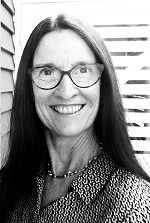Dunbar Fellowship Winner Announced
For the 2017 Dunbar Fellowship, the Selection Panel consisted of Bruce Wolfe, Rebecca Moore and Brit Anderson. The jointly decided that the recipient of the $20,000 should be Rosemary Kennedy, FRAIA
Queensland Chapter President, Bruce Wolfe, congratulated Rosemary on her application
‘Rosemary is well known for her passion for environmentally sensitive architecture and this is most evident in her proposed field of study,’ Mr Wolfe said.
The Dunbar Fellowship was established as a result of a generous bequest left to the Australian Institute of Architects by the late Jennifer Taylor.
‘On behalf of the Queensland Chapter I would like to once again express our sincere gratitude to Jennifer Taylor and her estate for this incredible bequest and opportunity to advance architectural study for Queensland architects.
‘This bequest, and subsequent scholarships, will maintain an ongoing educational program that will see a perpetuity of investment in our Queensland architects for many years into the future.
In an interview before she passed Jennifer summarized her visions for the Fellowship: “Australia must recognize where it is in the world,” she said. “We probably have the richest mixing pot of anywhere in the world. We have European heritage, Aboriginal heritage ,South-East Asian heritage and South Pacific heritage, and it seems to me that out of this should grow a wonderful and special architecture”.
2017 Dunbar Fellowship recipients

Rosemary Kennedy, FRAIA
For over 60 years, the air-conditioned glass box typology has dominated office tower architecture, but is now prominent in
residential towers worldwide, regardless of climate or place. This approach provides a technological solution that is economic to build but expensive to occupy. Very high energy inputs are required to contend with climatic rigours and residents are vulnerable to accessibility and liveability disruptions from not-infrequent power outages.
Nevertheless, some visionary architects working in South East Asia have adapted classical tropical design principles to produce vibrant modern variants that are attractive places to live and address important societal challenges associated with climate change, demographic shifts and technological advances. Can Australia’s next-generation apartment buildings benefit from East-West knowledge transfer? In order to explore strategies that can influence the emergence of potent climate-based architecture in Australia for both private and public benefit, I aim to investigate how these architects managed the competing interests of key stakeholders and achieved design innovation.
